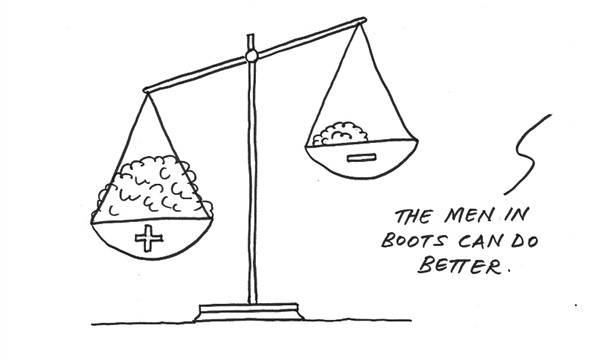
Khakis and police
Sir,
Reference reports about a scuffle between Motorway Police and two young captains in Nowshera. It is the love and respect of the people and their faith and belief in the disciplined men and women of our armed forces, which makes the army, navy and airforce and gives them the morale, strength and ability to defend the sovereignty of this country and serve as its guardians and protectors. The dignity, honor and discipline of institutions is restored and strengthened when they hold accountable the few within their ranks who through their misdeeds bring it into disrepute and controversies.
I hope that the process of accountability started by Gen Raheel would continue. Gen Raheel has won the hearts and minds of people by launching Zarb-e-Azb to rid this country of terrorists created by misadventures of both civil and khaki rulers of this country. Unfortunately, repetitive military interventions and involvement in politics and civil bureaucracy, along with conversion of once garrison looking cantonments into housing societies and commercial ventures has negatively impacted, what is otherwise, one of most disciplined and vital institutions of this country.
This incident involving two young officers and KP Motorway police for an alleged traffic violation needs to be addressed by their institution, instead of being covered up. We need to remember what happened in January 2005 at PPL plant in Sui when a lady doctor, Shazia Khalid, was allegedly sexually assaulted by a young man in uniform and instead of punishing culprits, Musharraf tried to cover it up, which provoked turmoil in Baluchistan and many lives were lost.
Tariq,
Lahore.
Acknowledgement
Sir,
After 24 years, Imran Khan finally acknowledged the services and talent of Javed Miandad while addressing a public meeting at Karachi’s Nishtar Park on September 6. As is said, it’s never late too late to make things right. It was on March 25, 1992 at the Melbourne cricket ground that Pakistan beat England by 22 runs under the captaincy of Imran Khan to lift the world cup trophy for the first time. Javed Miandad’s contribution was a marvelous 58 runs. The win at Melbourne was a result of a collective struggle and will of the complete cricket team, of course the maximum credit goes to the captain but to that historic win, the role of Vice Captain Javed Miandad cannot be overlooked, but to everyone’s surprise Imran Khan after lifting the trophy while making his speech as the captain of the winning team didn’t say a single word of praise for Miandad or for his teammates who had put a great effort to achieve that historical win. Now all of a sudden after more than two decades, the then captain of Pakistan’s cricket team came out showering all the praise on his onetime vice captain. Was it because he was addressing a crowd in Karachi? It was heartbreaking to hear a political leader of one of the largest political parties, Imran Khan, calling Javed Miandad a muhajir. Miandad was born in 1957, in Karachi, which was the capital of Pakistan at that time, and he never migrated from any part of the world to Pakistan, and is a born Pakistani. It’s ironic in our country that we divide citizens on ethnic grounds; if we continue with this state of mind we will never become Pakistanis.
Aamir Aqil,
Lahore.
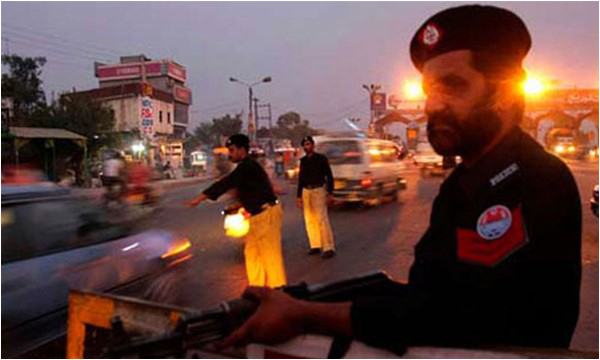
Priorities
Sir,
This is reference to the reaction by the Sindh CM and PM following the arrest of Khawaja Izhar, an MQM MPA, declared a proclaimed offender with non-bailable warrants of arrest issued by a court. It is surprising that on the day when over 22 innocent citizens were killed and 27 others injured in a terrorist attack on a mosque located in Mohmand Tribal area, the majority of electronic media, the PM and federal government considered it appropriate to focus only on Karachi, as if those who were massacred in the tribal area were children of a lesser god.
Other than mere technicality of the SSP’s jurisdiction, who conducted a raid after the relevant SHO had been suspended, and informing the speaker, which previously had been done after arrest of other parliamentarians, it was court orders that were being implemented. As for the media hype about the need for women police to accompany the SSP for maintaining sanctity of chaddar char diwari, may I ask do they accompany police when conducting raids on private residences to arrest alleged criminals? I agree that police should be more discreet and respectful to citizens.
This freemasonry and comradeship, be it by politicians, parliamentarians, members of uniformed services, lawyers, young doctors etc has impeded rule of law in Pakistan. The privileged sections of society consider it a right to violate laws as and when it suits them. Their vested interest is far more sacrosanct to them than what constitutes collective national interest. Why should a law officer authorized by the court be required to seek permission of political executive or for that matter any other head of an institution? Are we to assume that police is there only to arrest ordinary citizens whose taxes pay their salaries and also funds luxurious lifestyle of both elected and paid public officeholders?
Ali Malik,
Lahore.
Choice of words
Sir,
PTI Chairman Imran Khan backed controversial police officer Rao Anwar against Muttahida Qaumi Movement leader Khawaja Izharul Hassan. Imran Khan slammed PM Nawaz Sharif for compelling the Sindh Chief Minister to get the MQM leader released and for suspending the police officer who “was simply acting according to the law and in line with his duties”.
What is Imran Khan’s view on Rao Anwar’s attitude towards a female member of Izharul Hassan’s family? I think Imran Khan should have talked about this behavior also.
Mubashir Mahmood,
Karachi.
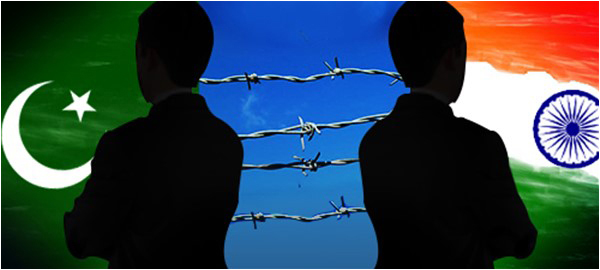
Root of the matter
Sir,
India and Pakistan share a history of hostile relations since their independence in 1947. The countries have never been on good terms and apparently don’t seem like they will get along moving forward. Pakistan’s Chief of Army Staff General Raheel Shareef recently termed the cause of hostility between the two countries as the “incomplete division of subcontinent”. Obviously, the Kashmir dispute is the legacy of an incomplete division. If Britain had divided the subcontinent justly, the world would not fear a nuclear war in South Asia. According to the partition plan, the fate of over 550 princely states was left to the geographical location and wishes of the people. The State of Jammu and Kashmir should have acceded to Pakistan because of its geographical location and Muslim majority population. The instrument of accession signed by Maharaja Hari Singh of Kashmir with India did not reflect the true will of the people. It is cited in history that tribal Pakistanis raided Kashmir, and in response Maharaja Hari Singh asked for help from the Indian government, but this is an engineered and fake version of the past. In fact, Indian forces landed in Kashmir first and retaliation from indigenous Kashmiris came later, which was rightly supported by Pakistan.
Recent developments in India and Pakistan are once again threatening regional peace and stability, and the possibilities of a nuclear war in the region are being discussed in the international media. With Modi as India’s Prime Minister, the threats are greater for Pakistan. Modi’s ambitions are inviting Pakistan to a war, but economically Pakistan is not in a position to afford another war. Indian violations of the Line and Control, hate speeches against Pakistan, media campaigns and strong diplomacy, are all parts of their preplanned strategy. Pakistan’s nuclear power is its best bulwark; otherwise ModiSarkar is in full mood to start a bloody adventure. Modi is hailed in India as the leader of pure Hindutva. He had and still has the support of hard-core Hindu extremist parties like RSS (Rashtriya Swayamsevak Sangh), which helped him grab the prime minister’s seat. Allegedly involved in the massacre of two thousand Muslims in Gujrat, Modi’s antagonism to Islam and Pakistan is not a new phenomenon, but his presence in the PM office is encouraging Indian hard-line parties and other members of parliament to engage in a war of words with Pakistan.
The issue of Kashmir will remain an ignition point for a nuclear war in the region. India needs to understand this better than Pakistan. As long as the Kashmiris are not given the right of plebiscite, Pakistan will extend its moral support to them. Pakistan needs powerful diplomacy to counter Indian lobbying, but sadly the Ministry of Foreign Affairs does not have a minister. Apparently, the army chief himself is doing the role of foreign affairs minister on behalf of the government.
Altaf Ahmad,
Lahore.
Meat vendors
Sir,
It is disillusioning to see that meat vendors in Pakistan have no compunctions about exploiting consumers by selling haraam meat. On a recent inspection, the food authorities discovered that a number of vendors had mixed pork or horsemeat with mutton and beef. This is tantamount to playing with consumers’ health, given that pork and horsemeat are considered unlawful in Islam. Moreover, the practice clearly violates Islamic rulings, which call for justice and fairness in business dealings and, in this case, require that traders and vendors should supply fresh, halaal and hygienic edibles to consumers.
The government should adopt a stringent mechanism to rectify this anomaly, for example, by sealing off such shops and heavily fining and/or arresting vendors found to be selling such meat to their customers.
Aiyza Javaid,
Lahore.
Muslim solution
Sir,
The current global environment of distrust of the Muslim world is not merely due to the violence and terrorism associated with Muslims. There are a number of reasons for this, which the Muslim community should examine and address.
First and foremost, Muslims should recognize that an interpretation of Islam that is more human rights-friendly is closer to modern thought and democracy than other faiths. Second, as long as Sunni Saudi Arabia and Shia Iran continue to oppose each other, neither will be capable of providing leadership or unity to the Muslim world. Thus, Muslims should consider looking to other countries to play this role. Here, Palestine could serve as a key bond. The Palestinians’ long history of repression by Israel commands respect and sympathy among Muslims across the world. More important are US interests in the region. As the world’s predominant economic and military power and with a vested interest in Israel’s wellbeing, the US has reason to want a solution to the Palestine and Syria crises. If the Palestine solution could be framed in conjunction with the Syrian solution, this would help resolve other problems being faced by Muslims in other parts of the world. For this, they must persuade the Palestinians to agree to such a solution through UNPKF and MESI.
After so much bloodshed and suffering, the Arab Spring should not be allowed to fail. With wide powers given to the UN Election Commission during the elections in Syria, the Muslim community should persuade the US not to give up when success is so close. The UN should be asked to make provision for volunteers from UN-registered human rights NGOs, who will likely come in large numbers from South Asia and the Southeast Muslim countries, to help bring peace and stability to Syria. This would also reduce the financial burden on UN peacekeeping programs in Syria and later in the rest of the Middle East. The Muslim world will also have to motivate the Palestinians to agree to a one-state solution with suitable modifications in their interest. Many Palestinians are now inclined to reject propaganda from Israel and the West in favor of a two-state solution. A useful measure could be to launch a registered lobbying forum in the US for interested people to lobby for the Palestinian cause.
Hem Raj Jain,
Jefferson City, MO.
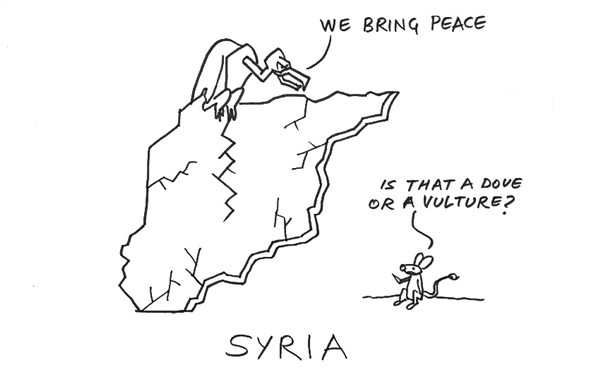
Syrian conflict
Sir,
According to media reports, the US and Russia have reached a breakthrough deal to try to restore peace in Syria. This would be good news if the ceasefire holds. The Syrian civil war began in 2011, with nationwide protests against President Bashar Al-Assad’s government, whose forces responded with a violent crackdown. The conflict gradually morphed from prominent protests to an armed rebellion after months of military sieges. Foreign powers including the US, Russia, Iran and Turkey are fighting proxy wars in the area. Russia and Iran both are providing crucial military support to President Assad against the rebels. Iran has sent what it says are military “advisers” to help Assad and have allowed Russian fighter bombers to use an Iranian base to launch operations in Syria.
The United Nations stated that more than 60,000 people have been killed since the civil war began. The migration of refugees has reached 10.9 million Syrians or almost half of the population having being displaced. The human rights of free expression, association and assembly are being violated and strictly controlled in Syria. Many cities of Syria have been engulfed in a wave of crime. Rates of theft and kidnappings have increased with criminals looting houses and stores. The cultural heritage of the country has also been destructed.
There is no military solution to the Syrian crisis. It should be resolved through peaceful means and by adopting a political process based on the Syrian people’s votes.
Mansoor Ahmed,
Faisalabad.
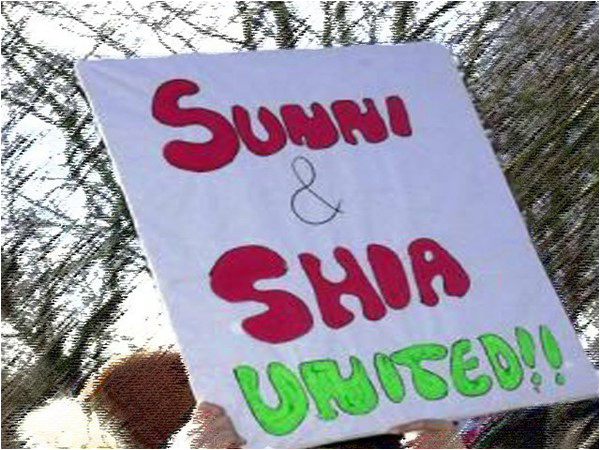
Harmony
Sir,
We regularly hear how the Shia-Sunni split finds its roots in the early years of Islam, and how this rift continues to play out in what is happening in the Middle East. Too often our TV screen are full of all that created rift, but seldom do we ever see or hear what can bring us together as one people. When you get to the depth of the matter, the things that perhaps divide Shias and Sunnis are very few compared to all that unites us. Our faith, our beliefs, the crux of our practices, even our theological sources are more or the less similar. Why is it then that we refuse to bury the past and start fresh.
Perhaps there are academics and intellectuals that can shed light on the matter and prescribe a way forward. But the fact remains, we Muslims need to come together. The sooner the better. Millions have lost their lives over the centuries, just because they did not belong to someone else’s sect. Surely we can understand the folly of our differences and prevent millions more losing their lives as this drama continues to unfold. Our leaders, religious and otherwise, need to come together and preach love instead of hatred, unity instead of division, tolerance instead of extremism. Not only would this help resolve so many conflicts playing out in the world right now, but also benefit us in Pakistan as a nation.
Asad Amir,
Lahore.

